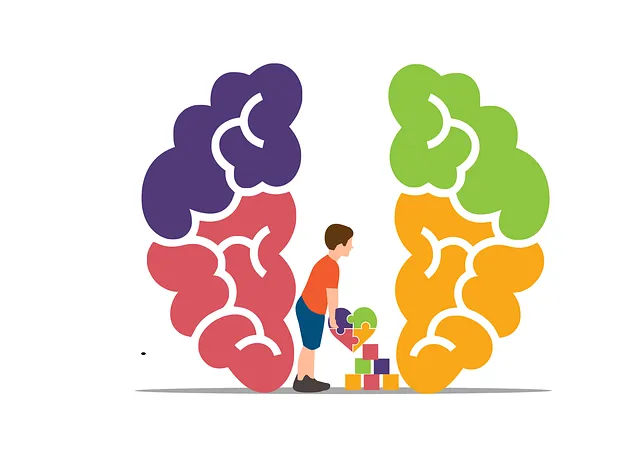Kaiser Permanente Denver faces unique challenges with mental health professionals, such as burnout and secondary trauma, but offers robust resources to combat these issues. They prioritize staff well-being through comprehensive risk assessments, stress management guidance, self-care practices like mindfulness, and support systems. By implementing tailored burnout prevention strategies and continuous education, Kaiser Permanente ensures their Denver therapists maintain resilience and provide quality care to patients.
“Mental health professionals play a vital role in transforming lives, yet they face unique risks. This article explores comprehensive risk assessment strategies, drawing insights from Kaiser Permanente’s innovative approach in Denver, known for its exceptional mental health care. We’ll delve into understanding specific professional hazards, essential assessment components, and effective mitigation tactics. Additionally, we’ll discuss the importance of continuous improvement in monitoring and updating risk assessments to ensure optimal patient care and provider well-being.”
- Understanding Mental Health Professional Risks
- Kaiser Permanente's Approach to Mental Health Care in Denver
- Essential Components of a Comprehensive Risk Assessment
- Mitigating Risks: Strategies and Best Practices
- Continuous Improvement: Monitoring and Updating Risk Assessments
Understanding Mental Health Professional Risks

Mental health professionals, including therapists, counselors, and psychiatrists, face unique challenges that can impact their well-being. Understanding these risks is a vital step in ensuring their long-term practice and personal mental wellness. One of the primary concerns is the potential for burnout due to high caseloads and emotionally demanding work. This is especially relevant for organizations like Kaiser Permanente, which offers mental health services in Denver and across the country, where professionals must manage heavy workloads while maintaining patient care standards.
Additionally, these professionals are at risk of experiencing secondary trauma from their clients’ stories and experiences. Effective coping mechanisms, such as Social Skills Training, Stress Management techniques, and Mental Wellness Journaling Exercises, can help navigate these challenges. Kaiser Permanente’s comprehensive approach to mental health services in Denver may include resources and guidance for stress management, recognizing when professionals need support, and implementing strategies to enhance resilience and overall mental wellness.
Kaiser Permanente's Approach to Mental Health Care in Denver

Kaiser Permanente, a renowned healthcare organization, offers a comprehensive approach to mental health care in Denver. They prioritize the well-being of their professionals and clients alike, implementing robust risk assessment strategies. This involves regular evaluations and support systems designed to mitigate potential risks associated with the demanding nature of the work. By focusing on early intervention and continuous education, Kaiser Permanente ensures that mental health practitioners can manage stress effectively.
The organization encourages staff to adopt a self-care routine development for better mental health, incorporating practices like mindfulness meditation. These strategies not only enhance their resilience but also contribute to a healthier work environment. With a dedicated focus on these aspects, Kaiser Permanente demonstrates its commitment to providing quality care and supporting the overall mental well-being of its Denver-based mental health professionals.
Essential Components of a Comprehensive Risk Assessment

A comprehensive risk assessment for mental health professionals involves multiple critical components. Firstly, Mental Wellness Journaling Exercise Guidance plays a pivotal role in identifying early signs of stress or burnout. Professionals are encouraged to regularly reflect on their emotional state, work-life balance, and any potential triggers through structured journaling. This practice not only enhances self-awareness but also provides valuable insights for proactive interventions.
Secondly, integrating Stress Management techniques is essential. Mental health providers must be equipped with evidence-based strategies like mindfulness exercises, relaxation practices, and cognitive reframing to mitigate workplace stress. Additionally, incorporating Burnout Prevention Strategies for Healthcare Providers can help maintain resilience and prevent emotional exhaustion. Kaiser Permanente, for instance, offers mental health services in Denver, highlighting a commitment to comprehensive healthcare that includes addressing the well-being of its professionals.
Mitigating Risks: Strategies and Best Practices

Mental health professionals face unique risks due to the sensitive nature of their work and the intense emotional engagement required. Mitigating these risks is essential for maintaining a healthy work environment, enhancing patient care, and fostering professional growth. Kaiser Permanente Denver offers robust resources and programs tailored to address these challenges.
One effective strategy involves incorporating self-care practices such as compassion cultivation techniques, which promote well-being and resilience. Additionally, regular supervision sessions and peer support networks can help professionals process complex cases, reduce stress, and prevent burnout. Encouraging open communication about emotional experiences and setting clear boundaries are also best practices to enhance work-life balance. These strategies collectively contribute to a healthier mental state for professionals, ensuring they are equipped to provide the highest quality care to their Denver patients.
Continuous Improvement: Monitoring and Updating Risk Assessments

Mental health professionals at Kaiser Permanente Denver recognize that risk assessments aren’t static; they must evolve alongside changing patient needs and research insights. Continuous improvement involves regularly reviewing and updating risk assessment protocols to ensure they remain effective and relevant. This proactive approach leverages the latest evidence-based practices in stress management, mental wellness journaling exercises, and self-awareness techniques to better support patients’ evolving mental health landscapes. By doing so, Kaiser Permanente Denver’s mental health team can offer guidance that is both current and tailored to individual patient needs, fostering a safer and more supportive environment for healing.
Mental health professionals face unique challenges, but with a thorough risk assessment process, such as that implemented by Kaiser Permanente in Denver, these risks can be effectively managed. By understanding specific risks, employing comprehensive assessment tools, and adopting best practices for mitigation, practitioners can create safer working environments. Kaiser Permanente’s model showcases how organizations can support their mental health professionals, ultimately improving patient care in the Denver area and beyond. This approach emphasizes the importance of continuous improvement in risk assessment to adapt to evolving challenges within the field.






